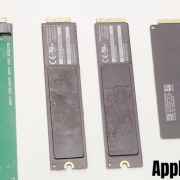SSD Can Make Data Recovery Harder
According to media survey, SSD annual failure rate is 1.5%, while the HDD is about 5%. Does this mean SSD is more reliable? Statistics show SSD is just less likely to fail in its early life stages, it does not mean that SSD is more reliable and can work longer than the HDD.
Like other electronic devices, SSD has a major flaw, prior to the failure, it often has no warning. HDD before the failure is usually accompanied by a warning signal, such as noise. but SSD is not, it could fail at any time which causes sudden data loss without backup.
From data recovery point of view, SSD adopts limited write endurance of flash memory chips as the storage medium, the number of flash chip writes is balanced to optimize algorithm to ensure that each Flash chip units can have substantially the same the number of writes, which in theory ensure a balanced life.
As a result, SSD storage structure is completely different with the traditional mechanical hard drives. Mechanical drives write sequentially from front to back, that is logically contiguous files, but also in the physical layer is usually stored contiguously. But for SSD, even logically contiguous files also write randomly in the physical layer.
The SSD randomized algorithm is decided by controller chip, the algorithm determines the speed of the SSD and flash storage life.
Controller supplier will usually encrypt its algorithm for copyright, which causes a problem for data recovery. Once the controller chip is damaged, the data cannot be reconstructed or recombined from several memory chips, the data is completely lost.




